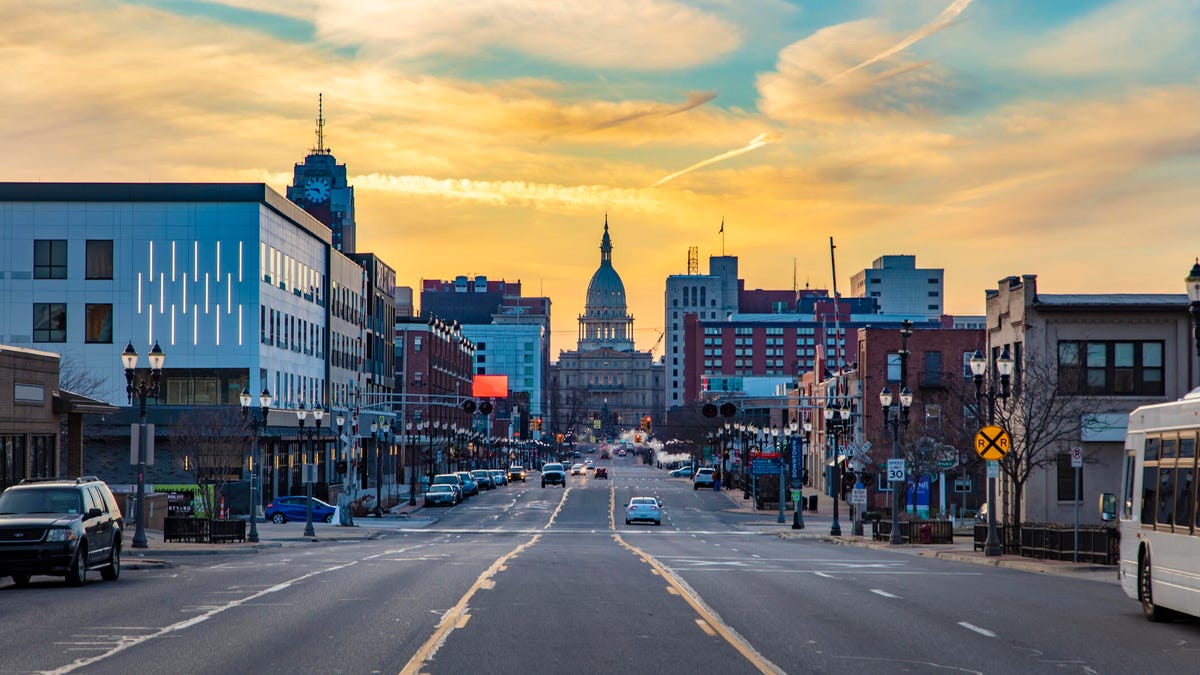Michigan Enacts Laws to Achieve 100% Clean Energy by 2040
The state is clearing potential roadblocks for rooftop solar panels as one step on the path to 100% clean energy.

Lawmakers in Lansing have moved to transform Michigan's energy landscape.
Michigan is the latest state to set an ambitious clean energy transition goal.
Michigan Gov. Gretchen Whitmer signed a package of bills into law this week that sets Michigan on one of the US' most ambitious timelines to achieve 100% clean energy. The new laws are a win for clean energy advocates.
"Fifty years ago, the extent of coal and oil's threats were just being realized. Twenty years ago, coal plants were still being proposed in-state. Now, a 100% clean energy future is in sight," Charlotte Jameson, chief policy officer for the Michigan Environmental Council, a policy advocacy organization, said in a statement.
Can solar panels save you money?
Interested in understanding the impact solar can have on your home? Enter some basic information below, and we’ll instantly provide a free estimate of your energy savings.
Getting to 100% clean energy
Whitmer, a Democrat, signed five bills that were passed in early November that aim to facilitate a transition away from fossil fuels. One of them requires 100% carbon-free energy generation from the state's two big utilities by 2040.
The plans include efforts to make it easier for more Michiganders to put solar panels on their roofs, eliminating potential policy hurdles for more small-scale electricity generation.
A rapid transition from burning fossil fuels to using renewable sources of energy is necessary to avoid the worst effects of human-caused climate change. Michigan joins other states with 100% clean energy goals, though on different timelines, including some fellow Midwestern states -- Illinois (2045) and Minnesota (2040). Michigan's 2040 timeline matches or beats similar goals, except Rhode Island, which aims for 100% renewables by 2033.
Currently, natural gas and coal make up most of Michigan's electricity generation, while nuclear and renewables make up a combined 34%. That portion will need to grow rapidly to meet the 2040 goal. (Natural gas with carbon capture will count toward the new "clean energy" goal, too.)
When they passed, Whitmer called them "common sense amendments," in a statement.
Besides mandating a transition to clean energy, the bills include provisions that require utilities to address wasted energy and encourage consumers to switch from gas to electricity. They also raise an existing cap on small solar panel arrays and adjust how owners of solar panels are compensated for energy sent back to the grid.
Power to OK projects moves to state
Another provision shifts the power to approve large wind and solar projects to the state, away from local control. While this could speed up the approval process, it comes with its own set of hazards.
It "will require very thoughtful decision-making processes by the [Michigan Public Service Commission]. The state overruling local concerns could backfire and lead to a voter-driven reversal in the legislation, ultimately slowing down a clean energy transition," Todd Allen, a professor of nuclear engineering and radiological sciences at the University of Michigan, said in a statement.



